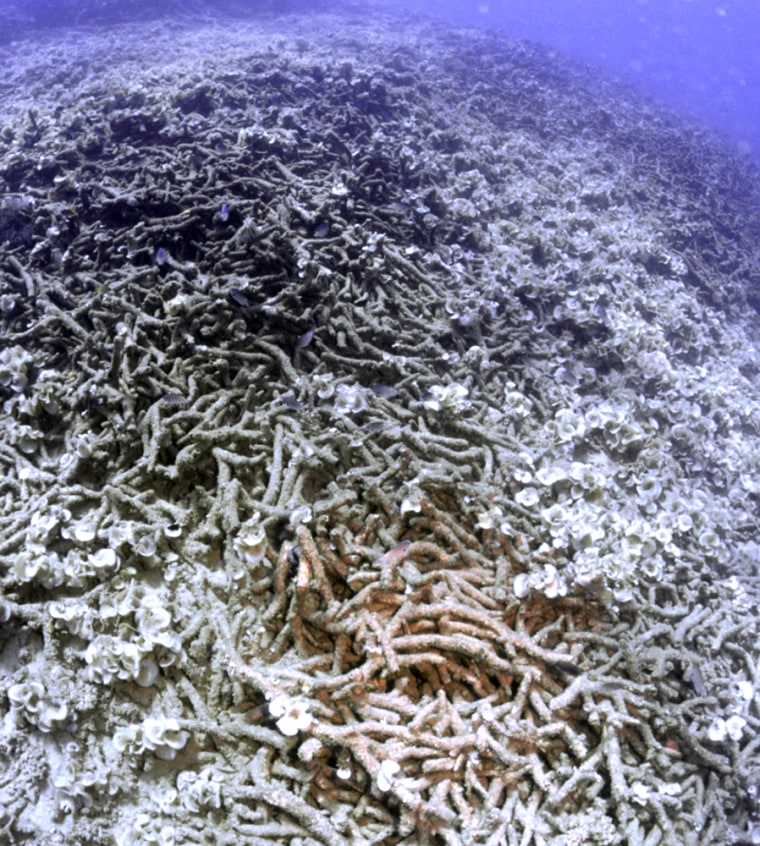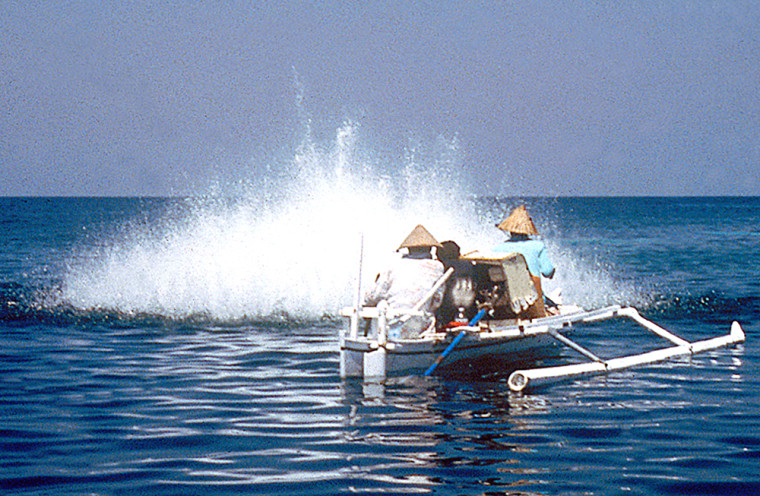Fishermen around Hong Kong are using dynamite to get their catch, aggravating a marine crisis caused by overfishing, pollution and dredging, the World Wildlife Fund said on Wednesday.
Using the world's first blast detector, the WWF along with Teng Hoi, another conservation organization, has picked up eight explosions since late November either in Hong Kong waters or across the border in China.
"We were quite surprised ... It picked up quite a lot of activity, which indicates there is a problem," said George Woodman, director of Teng Hoi.
The WWF plans to install more blast-detecting devices, which are essentially underwater listening devices developed by Teng Hoi and the Hong Kong University of Science. Teng Hoi plans to install them in Sabah, Malaysia, with support from the United Nations.
The announcement followed a series of reports about a global fisheries crisis, with many species, such as blue fin tuna or napoleon wrasse, threatened by extinction as a result of exploitation.
A ban on the use of dynamite in fishing came into affect in the mid-1990s. The practice kills large numbers of fish indiscriminately and shatters coral reef — shelter and food for many marine species. It can take decades for marine life to recover.
Still, blast fishing has become a serious problem in many countries, such as Malaysia, Indonesia and the Philippines. Fishermen risk their lives and resort to home-made explosives to catch a maximum haul in a minimum period of time.
"The resources have become over-exploited and damaged through pollution and reclamation and dredging ... The value of fishermen's catch is declining rapidly," Eric Bohm, chief executive of WWF Hong Kong, told a press conference.

"As people become more desperate, they take more desperate means to maintain themselves ... Poverty in the fishermen community is the underlying cause of this type of activity."
Though fish bombed illegally used to only fetch low prices, Woodman said such catches might be gaining in value as a series of food scares concerning fish farms in China has ramped up demand for fish caught at sea.
"It's a horrible thought ... that increasingly consumers are trying to get fish that's been blown up as they are not contaminated by all kinds of rubbish," Woodman told Reuters.
"It's not a sensible way of fishing. You get a lot of fish quickly but you can't go back and get fish next year ... Where are the fish going to come from for the next generation?."
